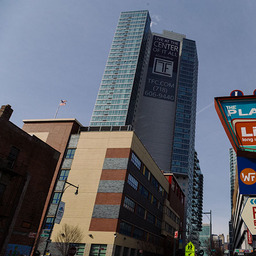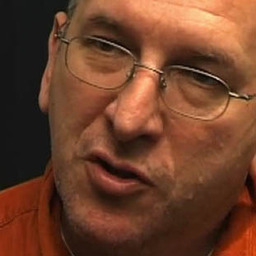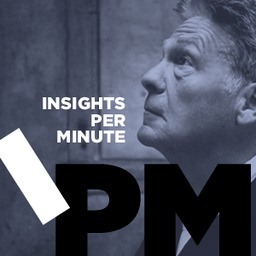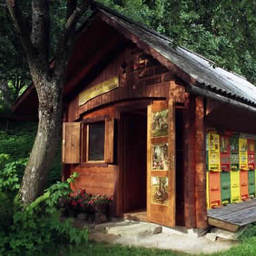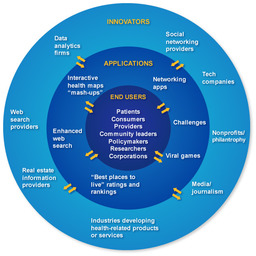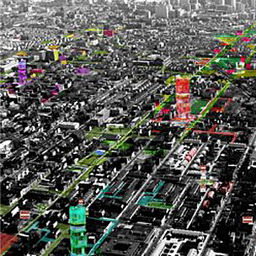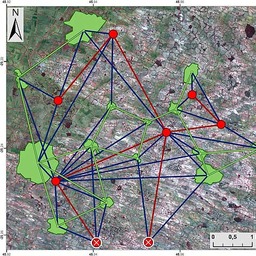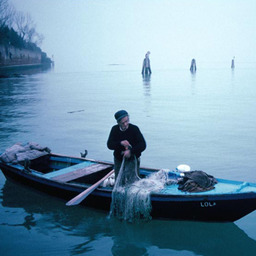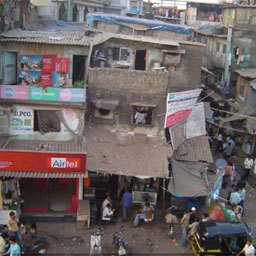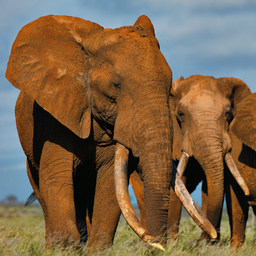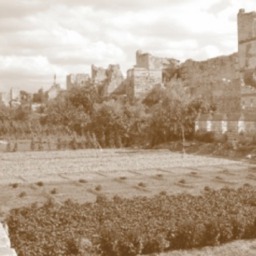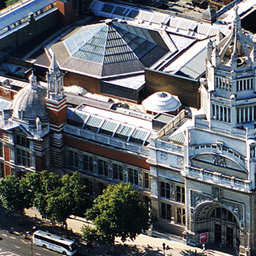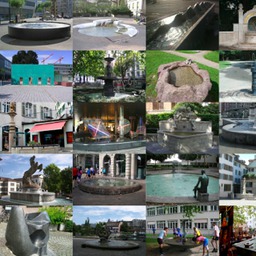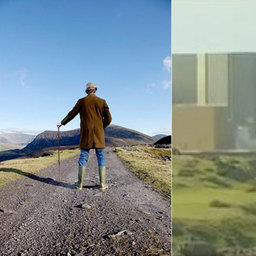Observed
Everything you ever wanted to know about the origins of Dutch design (but were afraid to ask).A meditation on the
history of design—and the rise of strategy—from Jarrett Fuller.
A meditation on
analog beauty—and vernacular signage—from Elizabeth Goodspeed.
Richard Stengel makes a compelling case that journalism should be free to save democracy. “According to the Reuters Institute for the Study of Journalism, more than 75% of America’s leading newspapers, magazines, and journals are behind online paywalls. And how do American news consumers react to that?” (
Subscription required.)
Please, please,
please…
get some sleep.The Supreme Court allows Idaho
to ban transgender health care for minors. For now.
Historically, we’ve invested huge resources to keep cities and nature separate. But we now know that the health of the soil and the health of people are the same story.
So, what does this have to do with design? Join the unstoppable John Thackara and Milan Politecnico professor Ezio Manzini today at 11 am ET as they discuss this critical—and surprisingly overlooked—environmental issue.
Conducted through audio interviews, Ana Miljački's
I Would Prefer Not To is an oral history project on the topic of the most important kind of refusal in architects’ toolboxes: refusal of the architectural commission. (Miljački, an architectural historian and theorist, is also Director of the Critical Broadcasting Lab at MIT.) Produced in conjunction with the Architectural League of New York, this podcast features conversations with a number of fascinating practitioners including Diller + Scofidio's Elizabeth Diller, WXY partner
Claire Weisz (who we interviewed in Season Three of The Design of Business | The Business of Design) and
Nina Cooke John (a Season Nine guest).
This past winter, a diverse cohort of students from the
MADE Program at Brown + RISD and Harvard immersed themselves in a wealth of data provided by the City of Boston with the mission of uncovering novel, meaningful, and joyful perspectives on navigating and understanding the urban environment. Their resulting projects—a series of interactive exhibits ranging from envisioning the evolving contours of the coastline to revealing the secret lives of the city’s trees—will be on view this week at the
Boston Museum of Science.
Designers are leaving corporate life in droves, re-designed out of their own jobs. “The strategic design gold rush is over,”
reports Robert Fabricant. So, where are they going? “[A} new class of platforms and networks have emerged, including
Neol,
Design Executive Council,
Chief Design Officer School, Design Leadership Job Board, and
Design Leaders.” This isn’t a bad thing, he says. “These platforms specifically target ‘fractional’ design leaders who are looking to support one another, collaborate on projects, better communicate their value, and source new income-generating opportunities, both individually and collectively.”
A new
project designed to amplify Indigenous-owned businesses on Google Maps and Google Search gets high marks from
Huitzilli Oronia, a Chicana designer from Denver, Colorado, and the creative production agency
Hook. Oronia contributed Google’s Indigenous-owned attribute icon and associated launch materials to the initiative. “This wasn’t just another campaign; it represented an opportunity to help Indigenous business owners share their heritage and foster deeper connections between the businesses and their consumers,”
she says.Yet another
social app built around talk, not text!
Faith Ringgold, the multimedia artist whose soaring work documented race, class, family, community, justice, and the African American experience in the U.S., has died. She was 93. Her work included painting, sculpture, mask- and doll-making, textiles, performance art, and children’s literature. “Few artists have kept as many balls in the air as long as Faith Ringgold,” the
New York Times art critic
Roberta Smith wrote in 2013. “She has spent more than five decades juggling message and form, high and low, art and craft, inspirational narrative and quiet or not so quiet fury about racial and sexual inequality.”
Nike is under fire for its “needlessly revealing and sexist” Team USA women’s track and field kit. “Wait, my hoo haa is gonna be out.”
AI is rewriting the internet. Here’s what to expect from Microsoft’s
Copilot, Google’s
Gemini, and OpenAI’s
ChatGPT-4. “These AI tools are vast autocomplete systems, trained to predict which word follows the next in any given sentence. As such, they have no hard-coded database of ‘facts’ to draw on — just the ability to write plausible-sounding statements. This means they have a tendency to present false information as truth since whether a given sentence sounds plausible does not guarantee its factuality,” says reporter James Vincent. Yay! The future sounds…?
The
National Governors Association has launched a new
Health Equity Learning Network to support policy solutions and share strategies to reduce health inequities in the U.S.
Daniel Kahneman, the Nobel Prize-winning psychologist who became known for his groundbreaking work in bias,
heuristics, and how people make decisions,
has died at 90. Kahneman became widely known for his 2011 book
Thinking, Fast and Slow, which aimed to “improve the ability to identify and understand errors of judgment and choice, in others and eventually ourselves, by providing a richer and more precise language to discuss them.”
Maqroo means readable: Leo Burnett Dubai agency has partnered with Omantel telecom network
to create a new dyslexia-friendly Arabic font. “Arabic is one of the oldest and most beautiful languages in the world. With 12 million words it is also the most complex, making it even harder for those with dyslexia to learn it,” says Leo Burnett Dubai art director Abdo Mohamed. (It’s also beautiful.)
Wicked looks good.
The much anticipated
Humane AI Pin has arrived, an expensive, subscription-based wearable chatbot — or “second brain” — that
nobody seems to like very much. Yet, I guess.
Who will represent
working-class life? A
documentary about the UK-based photographer Tish Murtha is asking important questions about which stories are told visually — and supported by the art establishment — and why. “She showed the reality of poverty and deprivation in communities where the misery of unemployment had been allowed to settle by the Westminster political classes who considered it a price worth other people paying for the boon of undermining trade union power,”
writes Peter Bradshaw. “But in capturing the faces, particularly the faces of children, Murtha showed her subjects’ humour, optimism and refusal to be cowed.”
An employee who worked as an art installer secretly hung one of his own paintings in the Pinakothek der Moderne in Munich, and we’re not that mad about it. “He was carrying tools; that’s why he went totally unnoticed,”
said Tine Nehler, a museum spokesperson. “As a technician, he was able to move around all areas of the building outside of opening hours.”
Marian Bantjes critiques the design and logic (and design logic) of
the food pyramid (and pyramids in general).
Lesly Pierre Paul’s
New Vision Art School turns to the arts as a way to continue local traditions and keep neighborhood children out of gangs.
Tahnee Ahtone joins the Nelson Atkins Museum in Kansas City as
Curator, Native American Art. She was previously the Director and Curator at the Kiowa Tribal Museum in Carnegie, Oklahoma.
News we love: founded in 2002 by
Nínive Calegari, a teacher, and McSweeney's founder (and author) Dave Eggers,
826 Valencia receives a $1 million donation from Yield Giving, a
massive philanthropy effort by Amazon co-founder MacKenzie Scott.
Next week, Case Western will host design anthropologist Christina Wasson, who will deliver the 2024
Applying Anthropology to Real World Problems Lecture. Entitled
The Participatory Design of Indigenous Heritage Archives, Wasson will describe how she has adapted participatory design methods to develop archives that preserve indigenous languages. (Thursday, April 18, at 4 p.m. in Mather Memorial Building, Room 201.)
Margerete Jahny belonged to a rare demographic of industrial designer: she was East German—and female—and according to design historian Günter Höhne, she was the first East German industrial designer, of any gender, with a university education.
New “networks” and “platforms” targeting “fractional” design leaders who are looking to support one another, collaborate on projects, better communicate their value, and source new income-generating opportunities, both individually and collectively. More on the reinvention
design leaders are facing, by Robert Fabricant.
Democratic state lawmakers in Colorado are ending the practice of anonymous surveys to determine which bills should live or die. The change to make all parts of the survey public comes months after a
judge ordered lawmakers to stop using their previous secret ballot system to prioritize legislation because it violated Colorado’s open meetings law,
reports the Longmont Leader.

